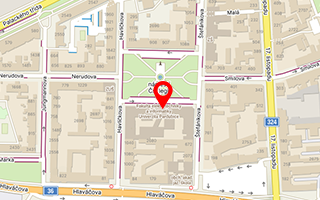Publikace detail
Řízení tepelné soustavy explicitním prediktivním regulátorem
Autoři:
Králová Jaroslava | Mareš Jan
Rok: 2010
Druh publikace: článek ve sborníku
Název zdroje: Proceedings of XXXVth Seminary ASR 2010 Instruments and Control
Název nakladatele: Vysoká škola báňská-Technická univerzita Ostrava
Místo vydání: Ostrava
Strana od-do: 185-193
